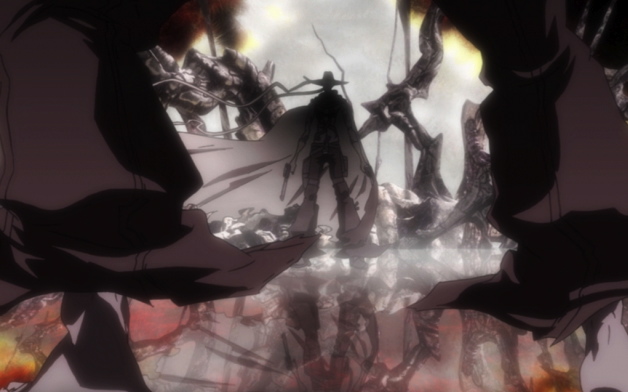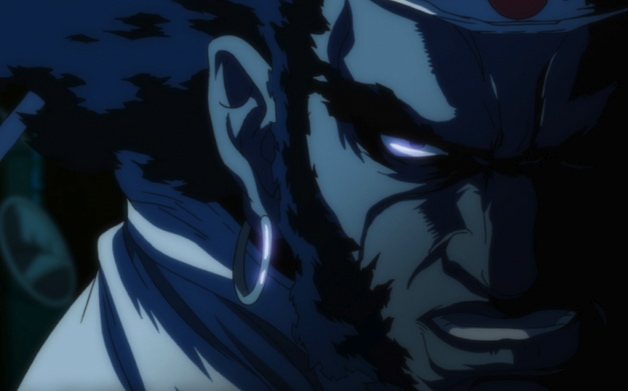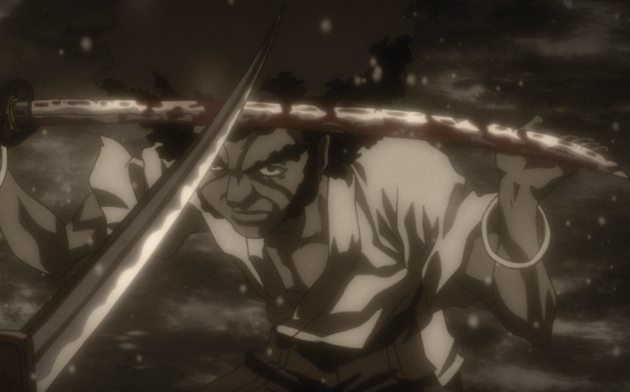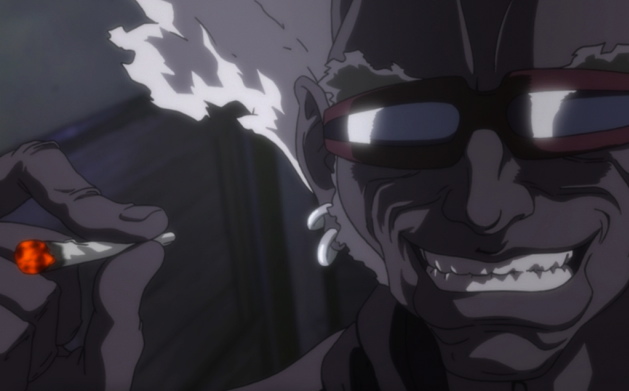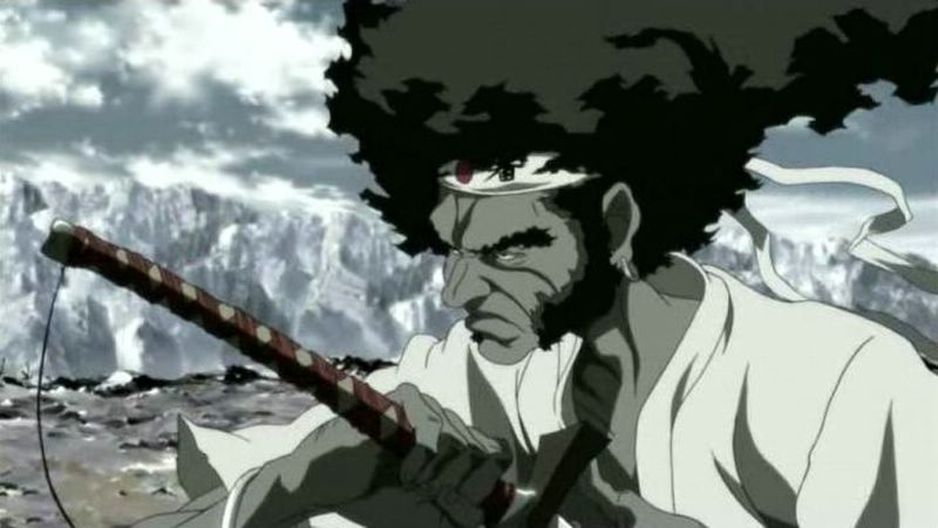|
★★★★☆
13 December 2007
This article is a review of AFRO SAMURAI. |
East meets west. History meets future. “It’s nothing personal, it’s just revenge” Afro Samurai (voiced by the one and only Samuel L. Jackson). Set in a parallel universe, where swords, guns and mobile phones all co-exist, only two items matter: The Number One headband and the Number Two headband. They are the most coveted possessions the ambitious, the greedy and the foolhardy desire. The Number One headband gives effective immortality to the possessor. The only person who can kill him is the owner of the Number Two headband; thus whoever has the Number Two is in perennial danger as would-be challengers use any and all means to dispossess him.
Created by Takashi Okazaki, he reportedly envisaged a huge history for these headbands spanning over a millennia. The tale of Afro Samurai, a television show that lasts five episodes with a second series to follow, is just a small slice in this epic.
Created by Takashi Okazaki, he reportedly envisaged a huge history for these headbands spanning over a millennia. The tale of Afro Samurai, a television show that lasts five episodes with a second series to follow, is just a small slice in this epic.
Opening on a beautifully animated twilight young Afro watches as his father, Rokutaro (voiced by Greg Eagles), and wearer of the Number One headband, is slain by the Number Two, Justice (voiced with charismatic menace by Ron Perlman (HELLBOY, BLADE 2). Crushed, Afro grows up seeking revenge. Season one is this journey, with interesting narrative jumps recounting his training, growth and acquiring the Number Two headband. AFRO SAMURAI is elevated above many animés because of this narrative device that shows in the now how lethal and single-minded he is, while simultaneously portraying how revenge can corrupt. It is a morality tale demonstrating violence begetting violence. There is heart to the story because so much is sacrificed – lives, innocence and companionship.
The other major plus for this opus is the meshing and weaving of styles. This is set in Japan, but it is like the Los Angeles of Ridley Scott’s BLADE RUNNER and the galaxy of Joss Whedon’s FIREFLY/SERENITY – a mass of outside influences that have made a stamp on the culture and the social fabric. The Japan of AFRO SAMURAI has the familiar buildings but as a place is reminiscent of the Wild West depicted in Sergio Leone movies. There is a lawlessness, amorality and survival of the fittest. So, east meets west. The primary weapon of choice is the samurai sword, harking back to Japan’s Shogun history, but other warriors carry revolvers and rocket launchers (!!), like a feral Mad Max post-apocalyptic world. This past, present, future melange is a heady mix. For those who like the steam punk subgenre (see Alan Moore’s THE LEAGUE OF EXTRAORDINARY GENTLEMEN, Katsuhiro Otomo’s STEAMBOY and Hayao Miyazaki’s CASTLE IN THE SKY) will get this, but for those who are not used to the blending of styles may find it takes a couple of episodes to get used to– but it is so worth giving it a proper shot.
The animation is hugely detailed, from distant binocular spying to crunching fist fights, coupled with Hollywood-style fast editing and manga levels of ferocious violence, tempered by the impressive design and speed delivered. The hip-hop sensibility is enhanced with a score by the Wu-Tang Clan’s RZA, who composed the music for Quentin Tarantino’s KILL BILL: PART 1 and Jim Jarmusch’s GHOST DOG: THE WAY OF THE SAMURAI, starring Oscar winner Forest Whitaker, which is an interesting live-action companion piece in the east and west theme. Samuel L. Jackson also voices Afro Samurai’s loquacious comedy sidekick, Ninja Ninja, as Afro is like Clint Eastwood’s man with no name – a man of few words, who lets his actions speak for him.
For those who like their cartoons with edge, this is a must. Roll on season two!


